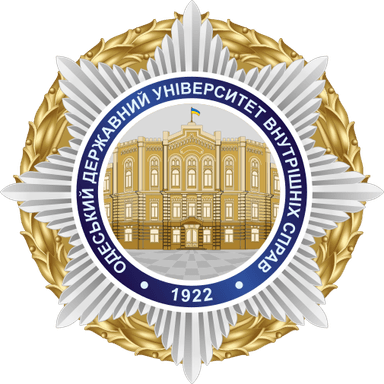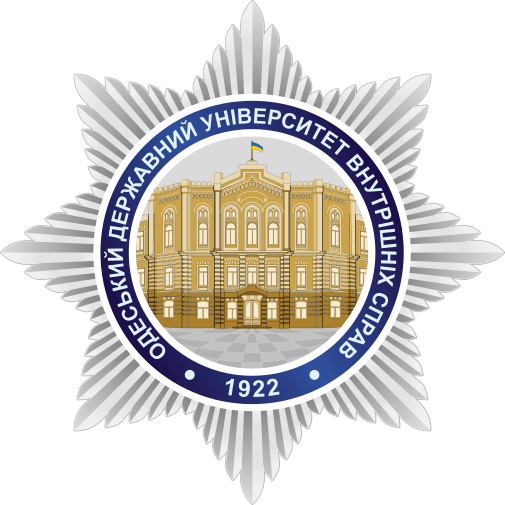Department of Criminal Analysis and Information Technologies
The Department of Criminal Analysis and Information Technologies is one of the leading departments of the university. Its history begins with the establishment of the Department of Management Fundamentals and Information Technology Support by Order No. 108 of the Ministry of Internal Affairs of Ukraine dated February 20, 1995. Later, on January 16, 2002, by Order No. 47 of the Ministry of Internal Affairs of Ukraine, the department was renamed into the Department of Management Fundamentals and Information Technology Support of the Internal Affairs Bodies of the Odesa Law Institute of Kharkiv National University of Internal Affairs. Subsequently, due to organizational changes, in May 2013 the department was renamed into the Department of Information Technology Support of Internal Affairs Bodies and Special Equipment, in September 2015 into the Department of Cybersecurity and Information Support, and since August 2024 it has been reorganized into the Department of Criminal Analysis and Information Technologies.
The main task of the department is to train highly qualified specialists for the National Police of Ukraine in the following areas:
- the use of information technologies by personnel of the National Police of Ukraine;
- informational and information-analytical support of the activities of the National Police of Ukraine;
- criminal analysis and risk forecasting;
- combating cybercrime;
- information security.
The academic and teaching staff of the department conduct trainings with applicants for higher education and students of advanced training courses, cyber police units, pre-trial investigation bodies, the State Border Service, patrol police, school safety officers, officers of information and analytical support units, and other divisions of the National Police of Ukraine. While studying the department’s academic disciplines, applicants for higher education acquire skills in using modern computer equipment, developing and utilizing databases, and working with decision support systems.
The Department of Criminal Analysis and Information Technologies graduates applicants for higher education in the specialty 124 “System Analysis” and also provides training for specialists in the specialties 081 “Law”, 262 “Law Enforcement Activity”, and 053 “Psychology”.
Graduates effectively apply the knowledge they have gained during their service in the operational and investigative units of the National Police of Ukraine.
In its work, the department constantly maintains contact with territorial cyber police units, the Criminal Analysis and Investigation Department, and actively cooperates with the Information and Analytical Support Department of the Main Directorate of National Police in the Odesa region.
Department staff are involved in conducting off-site trainings, providing advanced training, offering consultations to police personnel, and are also engaged as experts in the preparation and execution of investigative (search) activities.
The main areas of scientific work of the department are:
- the use of information technologies in operational-search and investigative activities;
- the development of security policies for computer systems;
- audit of computer security of the organization;
- the development and implementation of security systems;
- the organization of technical information security.
The department constantly carries out educational work with applicants for higher education, the scientific circle “Law Enforcer” operates, and applicants for higher education take part in scientific conferences, olympiads, competitions held between higher educational institutions, publish scientific articles and collaborate with the Criminal Analysis Department in order to align their developments with the needs of practical police units.
The department staff supervises the work of four computer labs, as well as the training center for combating cybercrime and monitoring cyberspace, the main activity of which is the study of issues of combating cybercrime and monitoring cyberspace.

Binary Class on “Digital Traces in Criminal Analysis”
29 January, 2026

